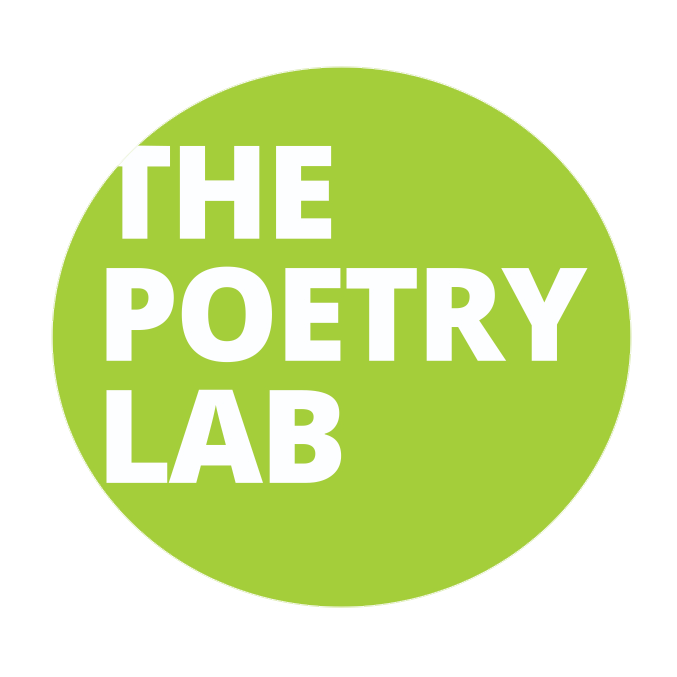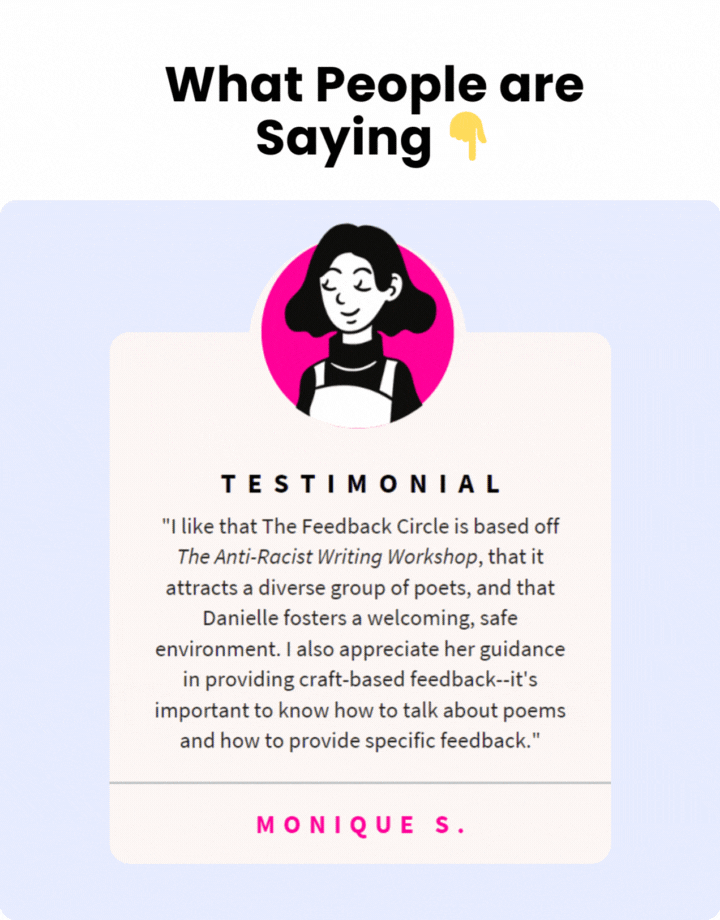Using Poetry as Medicine: The Truth is You’re Already Doing It
What You’re Doing, and Why It Matters
If you’ve grown up around poetry, you’ve more than likely heard that poetry has the power to heal. Poetry helps us feel, connect, think, remember, and articulate (in new and familiar ways) everything we know, and have yet to know, about our world, and our individual and collective purpose and place in it. The truth is, using poetry as medicine is natural, so natural, in fact, that I guarantee you’ve already been doing it, even if you’ve never used the fancy title.
If you’ve said a prayer, or expressed gratitude upon waking or sleeping, that’s poetic medicine
If you’ve written affirmations and repeated them in the mirror, that’s poetic medicine.
If you’ve written a letter to your younger self, or someone else, that’s poetic medicine.
If you’ve journaled daily, that’s poetic medicine.
If you’ve taken time, any time at all, in the last several months, to grieve or celebrate with others, that’s poetic medicine.
I could go on. This entire article could simply be a list of all the actions we take and rituals we practice. And I wouldn’t look at you sideways if you came to me and said, “Well, Allison, all of this is obvious. I know that already. I get it.”
I know you get it. I know it’s obvious. The trick now is to make you conscious of it; of your writing practice and what you and your practice are doing for each other. So, let us bring the fancy title back in and look at what poetic medicine actually is.
In his book, Poetic Medicine: The Healing Art of Poem-Making, John Fox, the director of the Institute for Poetic Medicine, says that poetry helps people “integrate the disparate, even fragmented, parts of their life.” In his words, poetry helps us feel our lives rather than be numb. The page becomes a place for painful feelings to be held, explored, and transformed. Poetry provides guidance revealing what you did not know you knew before you wrote or read the poem.
In my words, poetic medicine is the act of consciously writing about what you know so that you can find out just how deep that knowing goes.
Poetic medicine involves purposely writing about the things that impact you. The dysfunction, the hardship, the grief, the painful memories, even the silver moments of hope that help us through all that.
With poetic medicine, we proactively take, and make, time to feel and process our tough emotions. Using poetry in this healing way, offers us a container in which to confront that which is below the surface, to make the uncomfortable plain. With poetic medicine, we can transform confusion into sense.
Whenever I’m asked why I write, I always say I write so that I can find out what my higher self has to teach me. Poetic medicine embodies this philosophy.
In every moment, in any situation, we know more than we realize. We know about our families, our pets, the media we consume, our environments, and we know how we impact all those things, and how those things, in turn, impact us. At any time, we operate in a sphere of influence that both gives and takes from us.
The purpose of writing is to learn to trust this delicate balance, to trust our knowing—to allow our knowing to support us—which translates to healing.
Writing is a way to create structure around the otherwise unstructured. It is the process of turning the minute details into the bigger picture. It is the process of seeing a reaction as part of a larger pattern and seeing ourselves for who we are within the context of a given experience.
In the words of John Fox, writing poetry can strengthen our whole system—physical, mental, and spiritual. By externalizing our experiences and expressing them on paper, we can release old hurts and create new directions for the future. We can honor our past without being controlled by it.
How To Keep Going: Exercises in Poetic Medicine
So, now that you know a bit more about Poetic Medicine and have discovered that you’ve already been practicing it, how do you keep going?
Below are four exercises that I’ve gathered to help you continue your practice. Some I borrowed from others, some I created myself. Take what you want, share what you don’t. Either way, keep feeling, keep processing, keep healing.
1 The Self-Interview
Borrowed and restructured from Naming the World: And Other Exercises for the Creative Writer by Bret Anthony Johnston
Get to know yourself more deeply by asking yourself a series of questions about your life right now. Ponder the following questions to get started:
What is a place or environment that matters to you? How does that place make you feel? What are some things that you have done there? Connections you have made? Have you been back? Would you go back? Why or why not?
What energy do you want to release from your life? What energy do you want to invite in?
What are you passionate about? What is something you want to talk about—share—right now?
If you could change anything about your past, what would you change? Talk specifically about how you would change that moment or experience.
Look into the future. What is one thing or experience that you want to happen? Write about that thing or experience as if it has already happened. Be super detailed about the environment, smells, feelings, etc.
2 Reclaiming Feelings
Borrowed from Poetic Medicine: The Healing Art of Poem-Making by John Fox
Consider a time when you told someone you were fine, but you really weren’t. What image or metaphor describes suppressing your feelings? What would it look and feel like to express your feelings?
Write a poem about this moment, focusing specifically on reclaiming your power. What would happen if you said exactly what you felt in the moment? How would you want the other person to react? Write the poem of your ideal conversation/outcome.
3 Reframing Negative Statements
Set a timer for five minutes, then write a list of 10-15 negative statements that either someone else has said to you or you have said to yourself. For example: “I am not skinny enough,” or “You don’t have what it takes to do X.”
Once you have your initial list, set the timer for another five minutes, then rewrite each negative statement turning it into a positive. For example, “I am the weight that makes me feel the most healthy and beautiful,” or “I am capable of reaching my goal with discipline and small, steady steps.”
Once you have both lists, take another ten to fifteen minutes and write a poem where both voices are in conversation. What did you learn about each perspective? What did each voice tell you about who you are? What did you already know about yourself? What can you keep from each voice? What can you let go?
4 The Affirmation Poem
For this exercise, you will write three lists. The first list includes three things you love about yourself, the second list includes three things you are proud of, and the third list includes three goals you have reached.
Write a poem that celebrates you. Make sure to include one thing from each list. Extra points if you write it in the first-person point of view.
More Poetic Medicine Resources
If you want to learn more about this topic, here are some additional resources to check out:
💠 The Poetic Medicine Blog by Eve Lyons
Started in 2009 by Eve Lyons, this blog contains an extensive archive of curated poems on the topics of illness, death, trauma, war, climate change, and more. Of particular interest is the section Haiku for Mass Shootings.
💠 Between the Heartbeats: Poetry and Prose by Nurses, edited by Cortney Davis and Judy Schaefer
Published in 1995 by the University of Iowa Press, this collection includes poetry and prose by nurses who are on the front lines of caring for those who are sick. This collection includes writing from 49 nurses and offers perspectives distinct from doctors and families.
💠 Opening Up by Writing It Down: How Expressive Writing Improves Health and Eases Emotional Pain by James W. Pennebaker and Joshua M. Smyth
In this study, researchers James W. Pennebaker and Joshua M. Smyth detail how the practice of writing—for as little as twenty minutes a day over the course of four days—can lead to better health, including improved sleep and reduced stress.
* * *
At our core, we are a series of actions and reactions, and the process of poetic medicine can help us recognize, integrate, and know our patterns more intimately. Poetry helps us figure out what makes us tick and, when we figure it out, it's easier to connect with others in meaningful ways. Poetic medicine is the act of knowing ourselves so we can share ourselves with others. When we clearly articulate how we think and feel, we stand strongly in our wholeness.
If you’re feeling overwhelmed, that’s okay. The best thing about writing is that you can do it over and over again, and there’s no limit to how many times you can write about a given topic. If you feel like you only need to write about the death of your grandmother once (I envy you), great. If you need to write about it twenty-five times, one-hundred times, also great.
Writing is a process that you can pick up and put down as you see fit. If it was there for you once, it will be there for you again. Writing is a process that gives and takes, just like we give and take from all that surrounds us.
In her book, Writing as a Way of Healing: How Telling Our Stories Transforms Our Lives, Louise DeSalvo calls upon Alice Walker’s metaphor that writing is a sturdy ladder out of the pit. Writing is a way out of pain, trauma, fear, that is safe and dependable, always there, and always a path to freedom.
All you have to do is use it.
This article was published on July 16, 2024. Written by:





